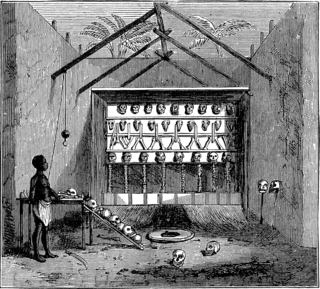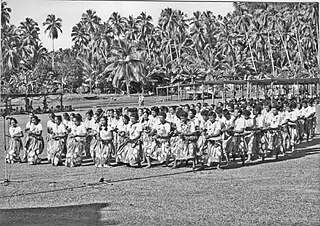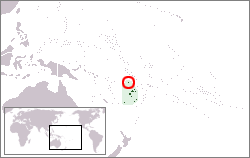
The music of Nigeria includes many kinds of folk and popular music, some of which are known worldwide. Styles of folk music are related to the multitudes of ethnic groups in the country, each with their own techniques, instruments, and songs. Little is known about the country's music history prior to European contact, although bronze carvings dating back to the 16th and 17th centuries have been found depicting musicians and their instruments. The largest ethnic groups are the Igbo, Hausa and Yoruba. Traditional music from Nigeria and throughout Africa is almost always functional; in other words, it is performed to mark a ritual such as a wedding or funeral and not to achieve artistic goals. Although some Nigerians, especially children and the elderly, play instruments for their own amusement, solo performance is otherwise rare. Music is closely linked to agriculture, and there are restrictions on, for example, which instruments can be played during different parts of the growing season.

Fiji is divided administratively into four divisions, which are further subdivided into fourteen provinces; the self-governing island of Rotuma and its dependencies lie outside any of the four divisions. Each division is headed by a Commissioner, appointed by the Fijian government. The divisions are basically agglomerations of provinces and have few administrative functions of their own, but serve to foster cooperation among the member provinces for providing services. Each province has a provincial council which may make bylaws and impose rates, subject to the approval of the Fijian Affairs Board, a government department. The board must also approve the appointment of the Roko Tui, or executive head of the provincial council, who is usually a high chief, although in recent years, commoners have sometimes been chosen.

Tak and the Power of Juju is an action-adventure platforming video game developed by Avalanche Software and published by THQ for the GameCube, PlayStation 2 and Game Boy Advance. The game was released in North America on October 15, 2003 and in Europe on March 12, 2004. The Game Boy Advance version was also released on a Triple Pack cartridge bundled with SpongeBob SquarePants: SuperSponge and Rugrats: I Gotta Go Party in 2005. The game spawned two direct sequels, Tak 2: The Staff of Dreams and Tak: The Great Juju Challenge, as well as two spinoffs based on the Tak tv series, Tak and the Guardians of Gross and Tak: Mojo Mistake.
A Juju is a supernatural power ascribed to an object.

Jùjú is a style of Nigerian popular music, derived from traditional Yoruba percussion. The name comes from a Yoruba word "juju" or "jiju" meaning "throwing" or "something being thrown." Juju music did not derive its name from juju, which "is a form of magic and the use of magic objects or witchcraft common in West Africa, Haiti, Cuba and other South American nations." It evolved in the 1920s in urban clubs across the countries, and was believed to have been created by AbdulRafiu Babatunde King, popularly known as Tunde King. The first jùjú recordings were by Tunde King and Ojoge Daniel from the same era of the 1920s when Tunde King pioneered it. The lead and predominant instrument of Jùjú is the Iya Ilu,"' talking drum.
The Council of Rotuma is a municipal body on the island of Rotuma, a Fijian dependency. Owing to the unique character of Rotuma, the powers of this council are greater than those of other municipal bodies in Fiji and in some ways it approximates a legislative body, though it is in every way subordinate to the Parliament of Fiji.

Juju is the fourth studio album by English alternative rock band Siouxsie and the Banshees. It was recorded at Surrey Sound studio with Nigel Gray as co-producer, and was released on 6 June 1981 by record label Polydor. Two singles were released from Juju: "Spellbound" and "Arabian Knights".
The Rotuma Group is a group of volcanic islands with Rotuma Island being the main island, located at 12°35′S177°10′E, approximately 465 km north of Fiji.

Tak and the Power of Juju is an American CGI animated television series that formerly aired on Nickelodeon from August 31, 2007 to January 24, 2009. Loosely based on the 2003 video game of the same name, the show consists of two eleven minute stories per half-hour episode. It is Nickelodeon's first all-CGI series and the company's 30th Nicktoon. The series was produced by Nick Jennings and directed, among others, by Mark Risley, Jim Schumann, and Heiko Drengenberg. Reruns aired from September 4, 2007 to August 12, 2012

Tak: The Great Juju Challenge is a platform video game released in 2005 by THQ. It is the sequel to Tak 2: The Staff of Dreams.

Juju or ju-ju is a spiritual belief system incorporating objects, such as amulets, and spells used in religious practice, as part of witchcraft in West Africa. The term has been applied to traditional African religions.

Dance in Rotuma refers to the traditional and modern dance styles performed by the people of the island of Rotuma, which became a dependency of Fiji in 1881. Despite Rotuma's political and historical links with Fiji, the island's culture shows strong Polynesian influences, particularly from Samoa and Tonga, which, along with Fiji, feature strongly in the history and traditions of the Rotuman people.
Gagaja[ŋaŋatʃa] is a Rotuman word denoting the position of "Chief" or "Lord". This could be a formal chiefly position in one of the seven districts or a village chief as well as to anyone else, such as the Chairman of the Rotuma Island Council to whom respect and deference is owed based on their own skills and attributes. Unlike in many other Pacific cultures, the official chiefly positions are not allocated according to any strict primogeniture, but rather are elected from all eligible males within certain kạinaga to whom the chiefly title belongs.
The Fakpure was the secular ruler of Rotuma in the pre-European contact times. It was one of three chiefly roles with direct influence across the island of Rotuma, the other two being the Mua and the Sau. Traditionally the most senior political authority on the island, the Fakpure was one of the gagaj ‘es itu’u of the districts of Rotuma, and the convener of the island’s Council of Chiefs. After being elected as the district chief through the traditional processes, the position of fakpure was bestowed on the most senior of these district chiefs, usually the chief whose district had won the most recent war, who also received the privilege of being the first served in the politically charged kava ceremony.

Itu'ti'u is one of the seven districts on the island of Rotuma, a dependency of Fiji. Rotuma's capital, the village of Ahau, is located in this district. It also includes the villages of Savlei, Lau, Feavai, Tuakoi, Motusa, Ropure, Melsa'a, and Losa.
The Rotumans are the indigenous inhabitants of Rotuma, a small island group forming part of the Republic of Fiji. The island itself is a cultural melting pot at the crossroads of the Micronesian, Melanesian and Polynesian divisions of the Pacific Ocean, and due to the seafaring nature of traditional Pacific cultures, the indigenous Rotuman have adopted or share many aspects of its multifaceted culture with its Melanesian, Micronesian and Polynesian neighbours.
Juju (ジュジュ) is a Japanese jazz and jpop singer. She is represented by Sony Music Associated Records Inc.
Juju is an open source application modeling tool developed by Canonical Ltd. Juju focuses on reducing the operation overhead of today's software by facilitating quickly deploying, configuring, scaling, integrating, and performing operational tasks on a wide choice of public and private cloud services along with bare metal servers and local container based deployments.

Khaneqah Juju is a village in Negel Rural District, Kalatrazan District, Sanandaj County, Kurdistan Province, Iran. At the 2006 census, its population was 111, in 23 families.













